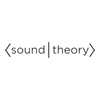
Soundtheory emerged from a long-term research project in 2016. For more than a decade, we've worked on an alternative approach to signal processing inspired by quantum theory and using mathematical methods from non-commutative algebra, differential geometry, and information theory. During this time, we gained some deep insights into perception and had developed exciting new and unique methods for realtime audio processing. We're particularly proud of our highly advanced model of computational auditory perception that opens up new possibilities of analyzing sound as we perceive it and of processing it without introducing any audible artifacts at all.
Gullfoss is the first in a line of products that employ our technology and demonstrate that simplicity, innovative technology, and incredible sound can work together in a product made for everyone who loves audio. While the technology behind Gullfoss involves intricate analysis and complex mathematical algorithms, Soundtheory has created an easy-to-use tool for everyone from the amateur musician to the professional mastering engineer. Its clean user interface offers a set of basic parameters that can be adjusted to improve the clarity, detail, spatiality, and balance of a mix or recording in a matter of seconds. Gullfoss is even capable of fixing balancing issues between different sound elements without access to the individual tracks.
Watch out for what the future brings because Soundtheory has only just started!
This is a marvelous product with enough control, but completely novel. Instead of presenting long term areas of concern, it follows the partials of your musical file in real time, adjusting 100*sec. I highly recommend it.
The controls are either 0-200 (first 2 below) or positive/negative amounts of the parameters as follows:
TAME. (This evidently sets the degree to which the program looks for problem resonances on a moment-to-moment basis.).
RECOVER. (Similarly, this evidently sets the degree to which the program looks for areas which would be masked by other louder.
BIAS (POS-NEG - SETS THE RELATIVE PERCENTAGE BETWEEN TAME AND RECOVER IF THE DECISION IS A GRAY AREA FOR THE PROGRAM).
BRIGHTEN.
BOOST.
There are also drag bars that let you limit what is included in the processing, or let you exclude a range.
I tried it on synths like Omnisphere and Falcon 2, bass, pianoteq and drums, and it has made it possible (not magically) to rapidly adjust the individual tracks so that future composing with them is more easy, and they will sit more transparently in the mix.
Once this is done, you can use it to process the final mix and further clean it up (if it is even necessary).
I experimented with pianoteq, and tried placing a reverb (EW spaces) then gulfoss after it, then Fabfilter Pro Q3. Fabfilter Pro Q3 was helpful to boost any little area of the sound that I was sorry for Gullfoss to have reduced - which was only necessary in very tiny areas of the spectrum (I did this as well on BFD3, getting more clarity but keeping a little character, just a 20-40 hz area that Gullfoss would have reduced in its limited computer wisdom).
Using it on pianoteq like that I was easily able to set it up so that even those rumbling bass piano tones were manageable, and I could literally play more harmonically rich material and still remain inspired. There wasn't the "deadening effect" that would normally happen if playing 10 notes including those low bass tones. In other words it kept it clear. My settings were not really extreme. The parameters offer wide enough control, that you can be subtle or you can overdo it if you want. You could use it as an fx by overdoing it as well.
As a guitarist, you could also run it in real time, it is not terribly CPU heavy, and if you set it to taste, your audience probably will hear what you play more clearly.
I bought it on sale but I'm interested in supporting the developers because they are really putting out some deep stuff here.
I don't think using this program ignorantly is really going to commonly produce trashing sounding stuff. Its practically idiot proof as long as one is a sincere student of mixing.
Read ReviewSubmit: News, Plugins, Hosts & Apps | Advertise @ KVR | Developer Account | About KVR / Contact Us | Privacy Statement
© KVR Audio, Inc. 2000-2024